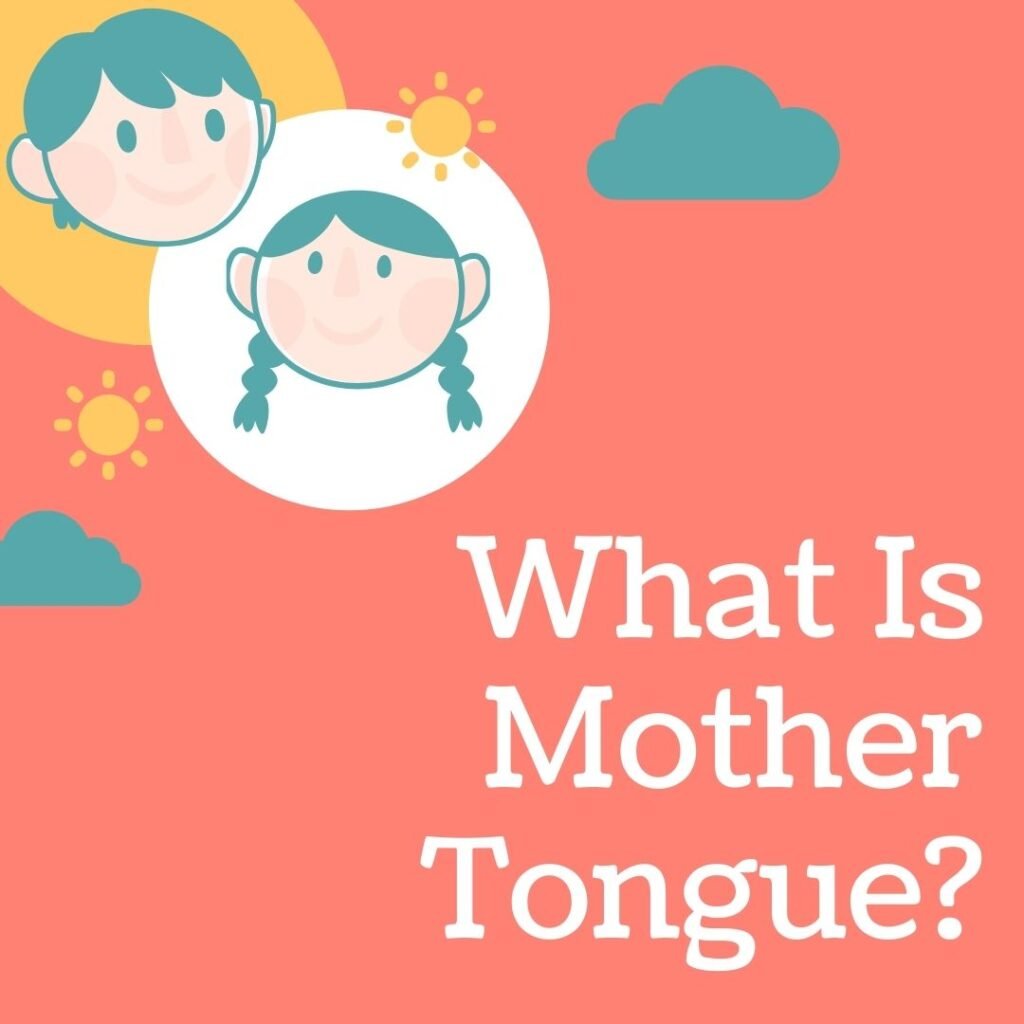Mother Tongue is losing its value in most nations like India. In a country like India, the education system has shamefully been the slave of foreign language English. And, knowingly or unknowingly, we have been insulting our mother tongue whenever we feel ashamed of using it. Can’t we even realize that it’s not just the insult of mother language, but it’s the insult of ourselves !. And, of course, it is the insult of our identification.
Therefore, this blog is to make you realize the importance of the mother tongue in a person’s life. And, you will soon realize how crucial things you may lose, if you lose your mother tongue. And, why you must value your mother tongue.
But, before we proceed further, you must understand what this mother tongue means actually. The language that you may have been using for many years needs not be your mother tongue. Then, what is it?
What Is Mother Tongue?
The very first language you learned from your parents is your mother tongue. Also, the language you learned from your ancestors maybe your mother tongue. It is even possible that your mother language may differ from your State language or the regional language. And you may have even more than one mother language. But, your main mother language is always the one that your family members generally use at home.

Now, it may confuse you that how a person may have more than one mother tongue. Ok, let me clear it to you.
Your parents may not have been using the same language that your grandparents may have been using. And, similarly, your grandparents may not have been using the same language that your great grand-Parents may have been using. This way, your mother tongue may not be the same as that of your grandparents and great grand-parents.
For example, my great-grandparents belong to Rajasthan. They used to communicate in the Rajasthani Hindi language. But, my parents belong to Jharkhand and use to communicate in Jharkhandi Hindi. Now, I can communicate in Hindi quite easily. After all, I am habituated to this language. And also, my parents communicate in the same language. But, I rarely visit my grandparent’s home. And therefore, I am not that much comfortable with the Bhojpuri language. And, I have never visited my great-grandparent’s home. Therefore, I don’t know Rajasthani Hindi. For me, Jharkhandi Hindi is my primary mother tongue, and Bhojpuri is my secondary mother tongue.
Ok, now, it’s time to see the importance of the mother language.
Importance Of Mother Tongue
It’s Your Identification And Pride as well.
Your mother tongue is not only the language to communicate, but it is also your identification. It shows the world that “who you are?”. The actual identification of a person depends on various factors four major factors namely designation, residence, relation, and language. There may be a thousand persons with the same name. But, it is only these four things that differentiate one person from the rest of others. Your name is not your real and complete identification. If you say, you belong to Maharashtra, it means you are a Maharashtrian. If you say, your native language is Maithili, it means you belong to Mithila. So, if you don’t respect your mother tongue, you are defaming your identification yourself.
It helps in Better And Complete Understanding About The Subject Matters.
According to various scientific researches, a person can learn things comparatively better in the mother language. It is the harsh truth that 90% of Indian students are rote learners rather than understanding actual logic and concepts. And that is why most Indians find it quite hard to get a job in reputed companies, and in foreign. And this rote learning is also the reason behind the backwardness of India in terms of technology. Whereas, nations like Japan, Italy, and Germany are way more advanced. And the reason behind it is that all the major subjects are taught in their mother tongue.
Learning something in the mother tongue also enhances the conclusion and debating potential. In a nation like India where important subjects are in English mainly. And, most of the students just rote rules and concepts. And, with time, it destroys their skills and knowledge. Lots of Indian students don’t have implantable knowledge. But they only used to rote things to score well in examinations. And this is the main reason that however, they may have scored excellent in Theoretical knowledge. But, when it comes to the implementation in the real world, and bringing some advancement, they fail generally.
Better And More Contribution Of Parents In The Educational Development Of Their Children Possible.
It’s a harsh truth that, at present, almost about 80% of Indian parents can’t understand English comfortably. And therefore, they can’t provide any education guidance to their children even they don’t know about other than paying fees on time. Also, they don’t have information about institutions such as NEET coaching, IIT coaching, etc. A child spends more than 70% of the time with family members and just 30% with teachers. And on average, a teacher hardly gets 5 minutes per day, or even less for each student. Within that short interval of time, it becomes almost impossible to improve the qualities of each student. And, also, the parents are helpless with the English Language. Hence, most of the famous schools examine the education of parents as well, before the admission of children. And, they prefer to choose intelligent students only.
But, subjects in the mother tongue may make it easier for parents to guide their children somehow. And it leads to complete educational and skill development.
Mother Tongue-Based Education System Makes Students Innovative Minded.
Education in the mother tongue makes the child more innovative, and it is highly crucial to make the nation developed. Whatever we use today, whether in our daily life or occasionally, are mainly manufactured in foreign nations mostly. And it is not that we don’t have the alternative resources to manufacture the required products here in India. But, what we lack is a sufficient number of innovative minds.
A person can think innovatively about a topic only if he/she has detailed knowledge about a subject, otherwise not. And it may only be possible with the mother tongue language, but not with a foreign language. You may find it quite easy that most of the amazing inventions belong to the time when the education systems were in mother tongues. For example, in India, we Indians developed surgery technology when medical science was in an Indian language. And there are a lot of other such examples.
But, at present, It is European nations mostly who have been inventing most of the things today. And rest others have been dependent on them for technology needs. And, it could possibly only be because their education system did not lose the importance of the mother tongue, but we did.
What Difficulties India Faces when Trying To Make Indian Education mother-tongue based completely.
In countries like Japan and Germany, all the people there can communicate in the Japanese language quite comfortably. No matter, they have many other languages as well. The rule applies to most other nations such as Germany, Italy, and so on. In a country like India, there are millions of mother languages. But there is not even a single out of them that all Indians can communicate with. This harsh truth applies to the Hindi language as well. Even Hindi is our national language, but in most parts of the nation, people can’t understand this language at all.
At present, it is only the English language that connects one state with the other linguistically. And, implementation of mother tongue in higher education may make it hard to get a job in other states. Especially, Hindi students may not be able to get jobs in Non-Hindi states and vice versa. It may enhance the unemployment rate.
How To Get Rid Of This Issue.
Yes, it is possible to get rid of this issue, but that is not easy enough. Also, the trick may take a quite long time. And, therefore, needs good patience.
The national language should be the compulsory part of education for all Indians. It will link them with the thread of one Indian language. And, our future generation of India, will be able to communicate in an Indian language quite easily. Then only, we can think of the implementation of mother tongue for higher education.
But, it does not mean to deny the importance of the English language. We must give equal importance to the English language as well. After all, it connects us internationally.
Ms.Rachna Verma, a visionary and aluminous of I.I.M.S. She served in many educational institutes for the last several years and during this process, the idea of a coaching institute that can support students mentally, physically, and educationally came into her mind. Her idea of a good coaching institute is not a number game.


